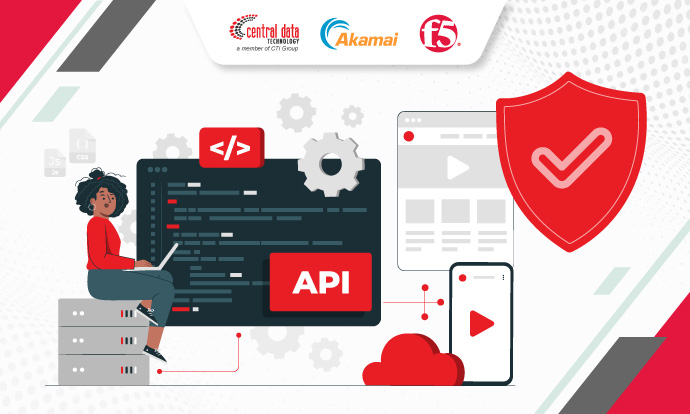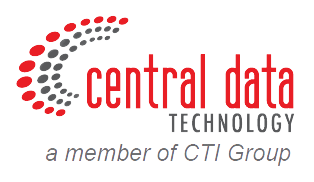
In the digital era, Application Programming Interface (API) has become a necessity for every company, helping developers create and monitor applications quickly and efficiently. However, the use of APIs also has weak points that can be detrimental to companies.
For example, API is vulnerable to cyberattacks because it has many security gaps for hackers. For example, a customer data leak occurred in early 2023 at a bank in Indonesia due to a ransomware attack.
So, why are APIs easy targets for cyberattacks and how can they be prevented? Find the explanation in this article.
What is API Security?
API Security is a security mechanism implemented to protect Application Programming Interfaces (APIs) from cyber threats and attacks. As a bridge that connects applications and other systems, APIs are vulnerable to various types of attacks, including injection attacks, Denial-of-Service (DoS) attacks, and malware.
To mitigate risks and protect APIs, companies need to implement API Security. Why? Because API Security features strong authentication, end-to-end data encryption, strict access control, and continuous monitoring of API traffic.
Of course, by implementing API Security, companies can maintain user trust, prevent financial and reputational losses, and ensure the smooth operation of their applications and systems.
Why is the API Vulnerable to Hacking?

In fact, cyberattacks occur because there are gaps in the application security system. These gaps can be caused by various things, such as errors in application or system development, the inability to update software regularly, and the lack of ability to identify and deal with security threats quickly and effectively.
Unsecured applications can certainly allow illegal access to sensitive information such as personal data, financial and business information. Apart from that, cyberattacks also occur because several companies use Shadow API. Shadow API is a third-party API that is not managed directly by the company’s IT security team, making it vulnerable to cyberattacks.
In Indonesia, cases of cyberattacks on APIs often affect e-commerce, banking, health and online transportation applications. As a result, users’ personal data and information is stolen and even sold.
To overcome this problem, it is time for application developers to ensure the security of their systems and update them regularly. Companies also need to use an API Security solution so they can carry out regular security testing and ensure that company and user data is protected.
Why is it Important to Adopt API Security?
API Security is a critical component in the modern digital ecosystem that ensures the integrity, confidentiality, and availability of data and services provided by Application Programming Interfaces (APIs).
The importance of API Security cannot be ignored because:
Sensitive Data Protection
APIs are often used to access and manipulate sensitive data such as user information, financial transactions, and identity details. Without adequate layers of security, APIs are vulnerable to cyberattacks that can result in the theft or manipulation of such sensitive data.
Cyber Attack Prevention
By implementing proper security practices, such as the use of firewalls, monitoring API traffic, and regular updates, organizations can reduce the risk of cyberattacks and protect their systems from damage.
Regulatory Compliance
Many industries, such as finance, healthcare, and e-commerce, are subject to strict security regulations and standards, such as GDPR, PCI DSS, and HIPAA. Failure to maintain API security can result in regulatory violations and serious legal consequences, including financial fines and reputational damage.
Are Traditional Security Approaches Sufficient for Fire Protection?
Traditional approaches to security are often inadequate to protect APIs effectively. Methods that rely solely on firewalls and basic authentication are often insufficient to address increasingly complex threats to APIs.
APIs have unique and complex properties that require a specific and more sophisticated security approach. They interact with various systems and applications, providing multiple entry points through which hackers may compromise.
Additionally, APIs often continue to change and evolve over time, introducing changes in potential entry points for attacks. Therefore, the API Security approach must also be dynamic and adaptable, with continuous monitoring and updating to identify and address emerging threats.
What are the Risks of Using Traditional Security APIs?
API Security risks are threats that can cause serious harm to organizations and their users. Some of the main risks associated with API Security include:
Sensitive Data Leak
Security vulnerabilities in APIs can be exploited by attackers to steal sensitive data, such as users’ personal information, login credentials, or financial data. Data leaks can cause financial losses, reputational losses, and violate applicable privacy regulations.
Data Manipulation
Hackers who successfully infiltrate the API can manipulate or change the data sent or received by the application. This can result in misinformation, financial loss, or even damage to the company’s reputation.
Denial-of-Service (DoS) Attack
DoS attacks aim to disable services by pouring extremely high levels of traffic to the API, causing performance degradation or even total system failure. These types of attacks can disrupt business operations, cause financial losses, and damage a company’s reputation.
Security Vulnerability Injection and Exploitation
Attackers can exploit security holes in APIs to carry out injection attacks, such as SQL injection or XML injection, which can provide unauthorized access to systems or sensitive data.
Loss of Control over Access
Lack of proper access controls on APIs can lead to unauthorized or unauthorized access to systems and data. This can open the door for attackers to damage or steal important information.
Addressing security risks in APIs requires a holistic approach, such as the Akamai WAF and F5 API Security solutions, which include the implementation of strong security practices and continuous monitoring of API traffic.
Best API Security Solution from Akamai WAF
Akamai WAF is a suite of solutions designed to effectively protect APIs (Application Programming Interfaces) from various security threats. One of the main solutions offered is Web Application Firewall (WAF), which helps protect APIs from cyberattacks such as injection attacks, XSS (Cross-Site Scripting) attacks, and DoS (Denial of Service) attacks.

Source: Akamai API Security Product Brief
Akamai WAF uses Artificial Intelligence and behavioral analysis to identify and block attacks before they reach the user’s infrastructure, thereby maintaining security and service availability.
Akamai API Security also provides solutions to manage user access through strong authentication and authorization. This includes API tokens, integration with identity services, and role-based access control. This way, only users who have valid credentials and appropriate permissions can access the API, reducing the risk of unauthorized or unauthorized access.
In addition to protection against attacks and access management, Akamai API Security also offers powerful monitoring and analysis features. This solution allows users to monitor API traffic in real-time, detect suspicious activity, and respond quickly to security threats.
Complete Your API Security System with Integrated Solutions from F5
In addition to deploying Akamai WAF, you can use F5 API Security to provide security across multiple environments, including data centers, cloud infrastructure, edge networking, mobile applications, and third-party integrations.

Source: F5 API Security
By extending security measures across complex digital and multi-cloud infrastructures, F5 aims to reduce risk and operational complexity while improving the overall security posture.
Continuous protection is another important aspect of the F5 API Security solution. Through visibility, implementable insights, and ML capabilities, F5 enables companies to continuously monitor and defend against API threats.
So, F5 enables companies to innovate with confidence while ensuring the security and integrity of their API-driven digital initiatives throughout the development, implementation, and maintenance lifecycle.
Read more: Practical Strategies for Safeguarding Personal Data and Cybersecurity in the Public Sector
Strengthen Your API Security, Consult with the CDT Team
It’s time to create a secure API security system against cyber-attacks and threats through the Akamai WAF and F5 API Security solutions at Central Data Technology (CDT).
CDT as an advanced authorized partner of F5 and Akamai, will help you from the consultation stage, deployment, to after-sales support to avoid trial and error. For more information about F5 and Akamai, contact us by clicking the following link.
Author: Ary Adianto
CTI Group Content Writers

